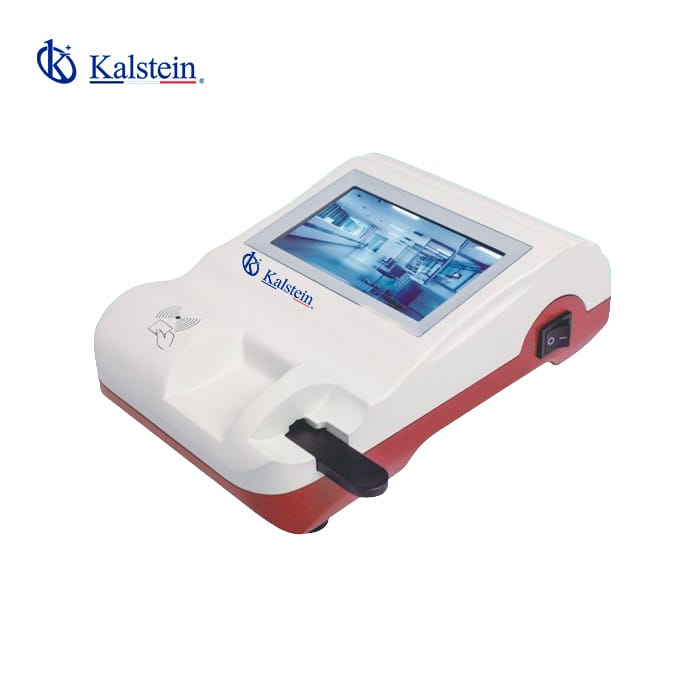As a scientist or laboratory technician, your ongoing challenge might be to enhance the efficiency and accuracy of your analyses.
One of the best-kept secrets to overcoming this challenge is the effective use of laboratory analyzers.
We understand that you need equipment that delivers maximum value to your laboratory. We invite you to visit https://kalstein.co.nz/category-product/laboratory-line/analyzers-laboratory-line/ to immerse yourself in our universe of cutting-edge technology equipment. Our prices are competitive and accessible, we combine the convenience of online shopping with the guarantee of an exceptional product. Because you deserve the best, we create and offer top-tier laboratory equipment. Make your choice today, where science comes to life. https://kalstein.co.nz/
Analyzers – The Precise and Effective Tool in the Laboratory
One of the main reasons to use an analyzer system in the laboratory is its efficacy and accuracy. For instance, blood analyzers are designed to produce accurate and repeatable results, reducing the need for secondary analyses. Similarly, biochemistry analyzers are designed to perform a variety of biochemical assays with accuracy and efficiency.
Analyzer Features
Laboratory analyzers come equipped with various features designed to enhance accuracy and efficiency. For example, some include extraction modules to facilitate sample collection, while others have self-calibration functions to ensure accuracy over time.
Why Do Analyzers Have This Price Tag?
Laboratory analyzers are substantial investments, and there are several reasons why these devices are priced as they are. The first is the technology and engineering that go into these devices. Manufacturing processes are costly and require a high level of precision.
Compare Analyzers with Similar Products
When comparing Kalstein to other laboratory analyzer manufacturers, one of the main differences is the value for money. Kalstein products are known for their durability, consistency, and ease of use, making them a valuable long-term investment.
Pros and Cons of Analyzers
|
Pros |
Cons |
|
Improved efficiency |
Requires regular maintenance |
|
High accuracy and reliability |
High initial investment |
|
Wide range of analyses |
Requires training for use |
|
Increased productivity |
Dependence on electricity |
|
Low operating costs |
Spare part costs |
|
Self-calibration |
Deterioration over time |
|
Low reagent consumption |
Prone to errors if not properly maintained |
|
Long term benefits |
Space needs |
Advantages of These Analyzers
Additionally, thanks to their advanced design and implemented technologies, laboratory analyzers save a great deal of time and resources. They are designed to automate many of the routine tasks that normally consume valuable time in the laboratory.
Other Benefits of These Analyzers
Laboratory analyzers also help to reduce errors. Thanks to their accuracy and capability to efficiently handle multiple samples at once, they minimize the potential for human errors, which can be costly and time-consuming in laboratory processes.
Feedback on Analyzers
Currently, many laboratories rely on laboratory analyzers to improve accuracy and efficiency. Most feedback points to their ability to provide quick and accurate results as one of their biggest advantages. Some mention their easy handling and maintenance, particularly useful for labs with a heavy workload.
Frequently Asked Questions
What type of maintenance do analyzers require?
The type of maintenance required varies depending on the model and usage of the analyzer. In general, it is necessary to carry out tasks such as regular cleaning of the parts and checking them to ensure they are functioning correctly.
Are analyzers difficult to use?
Most analyzers are designed to be easy to use. However, training may be required to become familiar with more advanced functions.
How long do these analyzers last?
With proper care and maintenance, these devices can last several years. However, the lifespan may vary depending on the usage and specific model.
How can the efficiency of analyzers be compared with other laboratory equipment?
Compared to other laboratory tools, analyzers can process samples at a much faster rate and with greater precision. They can also operate autonomously, freeing up time for laboratory staff to tackle other tasks.
What is the average cost of a laboratory analyzer?
The cost of an analyzer can vary depending on its features and functionalities. However, on average, a good laboratory analyzer can cost from several thousand to tens of thousands of dollars. Make sure to research and compare prices before making a purchase.
Do laboratory analyzers require any special power source to operate?
Most laboratory analyzers operate with standard electricity. However, some models may require a particular type of power or specialized energy source, so it is essential to review the equipment’s specifications before making a purchase.
Conclusions on These Analyzers
In conclusion, laboratory analyzers are an essential tool for any laboratory seeking to improve its efficiency and accuracy. While they represent a considerable initial investment, their long-term benefits such as improved results, increased productivity, and error reduction make them worth the cost. Properly selected and maintained, an analyzer can be a valuable addition to your laboratory.

